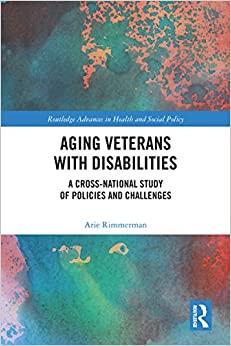The number of older war veterans receiving disability benefits is steadily growing and is predicted to rise in the next decade. This book provides comprehensive knowledge about health and psychosocial concerns of veterans aging with disabilities and unmet needs and compares policy in three countries that have been involved in massive warfare in the 20th century––the United Kingdom (UK), the United States (US), and Israel.
Using a cross-national comparative study of the policies, legislation and services provided by these three countries, which have significant numbers of aging disabled military veterans, this book provides evidence-based knowledge on the trajectories and attendant mental-health and psychosocial problems this sub-group faces when aging with a disability. It sheds light on the paradox in which most veterans with disabilities in the UK, USA and Israel are older, while the current legislation and budget target younger veterans with disabilities. The book reflects the current debate regarding the desired policy toward older veterans with disabilities in these countries and whether to provide them with proactive health services prior to retirement to prevent "accelerated aging". It also evaluates the dilemma of whether to serve aging veterans separately as a unique population or to provide them with the same services used by the general population.
This book will be of interest to all academics and students working in disability studies, rehabilitation studies, gerontology, psychology, sociology, social work, social policy, and law more broadly.











